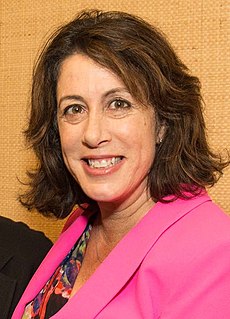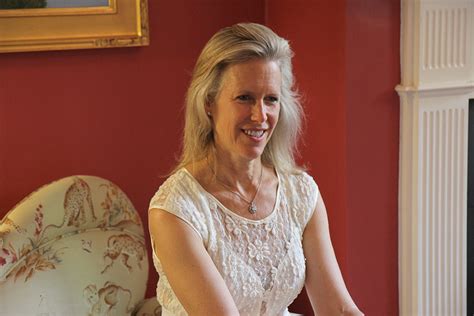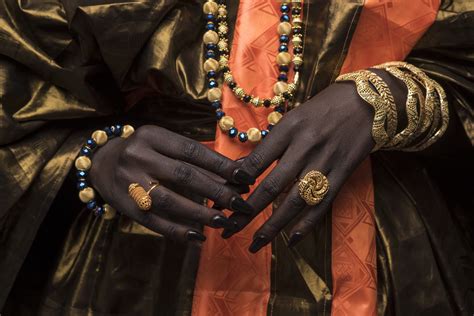A Quote by Christine Pelosi
Having seen my mom in community volunteer work my whole life and in Congress for 25 years, it is true as she often says that she sees her service as an extension of her role as a mother and a grandmother.
Related Quotes
One thing I did have under my belt was, my mother lost her mother when she was 11. She mourned her mother her whole life and made my grandmother seem present even though I never met her. I couldn't imagine how my mom could go on but she did, she took care of us, she worked two jobs and had four children. She was such a good example of how to conduct oneself in a time of grief. When I lost my husband, I tried to model myself as much as I could on her.
It's right around this time that her Grandmother Hall dies. And Eleanor Roosevelt is responsible for making all the funeral arrangements. And there are a couple of things that she really understands, as she contemplates her grandmother's life and makes the funeral arrangements. One, she's really talented, an organizational woman. She knows how to do things. She begins to compare her life to her grandmother's life. And it's very clear to her that being a devoted wife and a devoted mother is not enough.
Hazel has to realize that her mom was wrong when she said, “I won’t be a mother anymore.” The truth is, after Hazel dies (assuming she dies), her mom will still be her mom, just as my grandmother is still my grandmother even though she has died. As long as either person is still alive, that relationship survives. (It changes, but it survives.)
My mom is one of my role models in a complicated way. I learned from her how to be a good mom. She was one of those natural moms who really took to it. Her chosen profession was teaching. She loves kids. But she was extremely frustrated and unhappy because for much of my life she was a stay-at-home mom.
I heard a story about a woman who grew up in Texas. When she was having trouble in her life, she would visit her grandmother, who lived nearby and always had a kind word and some wisdom to pass on. One day she was complaining to her grandmother about some situation and her grandmother just turned to her, smiled sadly, and said, "Sometimes, darlin', you've just got to rise above yourself in this life." I've remembered that wise advice many times as I've faced trouble in my life.
The good enough mother, owing to her deep empathy with her infant, reflects in her face his feelings; this is why he sees himselfin her face as if in a mirror and finds himself as he sees himself in her. The not good enough mother fails to reflect the infant's feelings in her face because she is too preoccupied with her own concerns, such as her worries over whether she is doing right by her child, her anxiety that she might fail him.
In 1971, Bossier City, Louisiana, there was a teenage girl who was pregnant with her second child. She was a high school dropout and a single mom, but somehow she managed to make a better life for herself and her children. She encouraged her kids to be creative, to work hard and to do something special. That girl is my mother and she's here tonight. And I just want to say, I love you, Mom. Thank you for teaching me to dream.
Well, when Eleanor Roosevelt's mother dies, she goes to live with her Grandmother Hall. And her Grandmother Hall is in mourning. She's in widow's weeds. She's in her 50s, but appears very old. And she's exhausted from raising rather out-of-control children. Her favorite daughter, Anna, has died (Eleanor's mother), and she has living at home two other sons, Vallie and Eddie. And they are incredible sportsmen, incredible drinkers, out-of-control alcoholics.
She came into a room; she stood, as he had often seen her, in a doorway with lots of people round her. But it was Clarissa one remembered. Not that she was striking; not beautiful at all; there was nothing picturesque about her; she never said anything specially clever; there she was however; there she was.



































